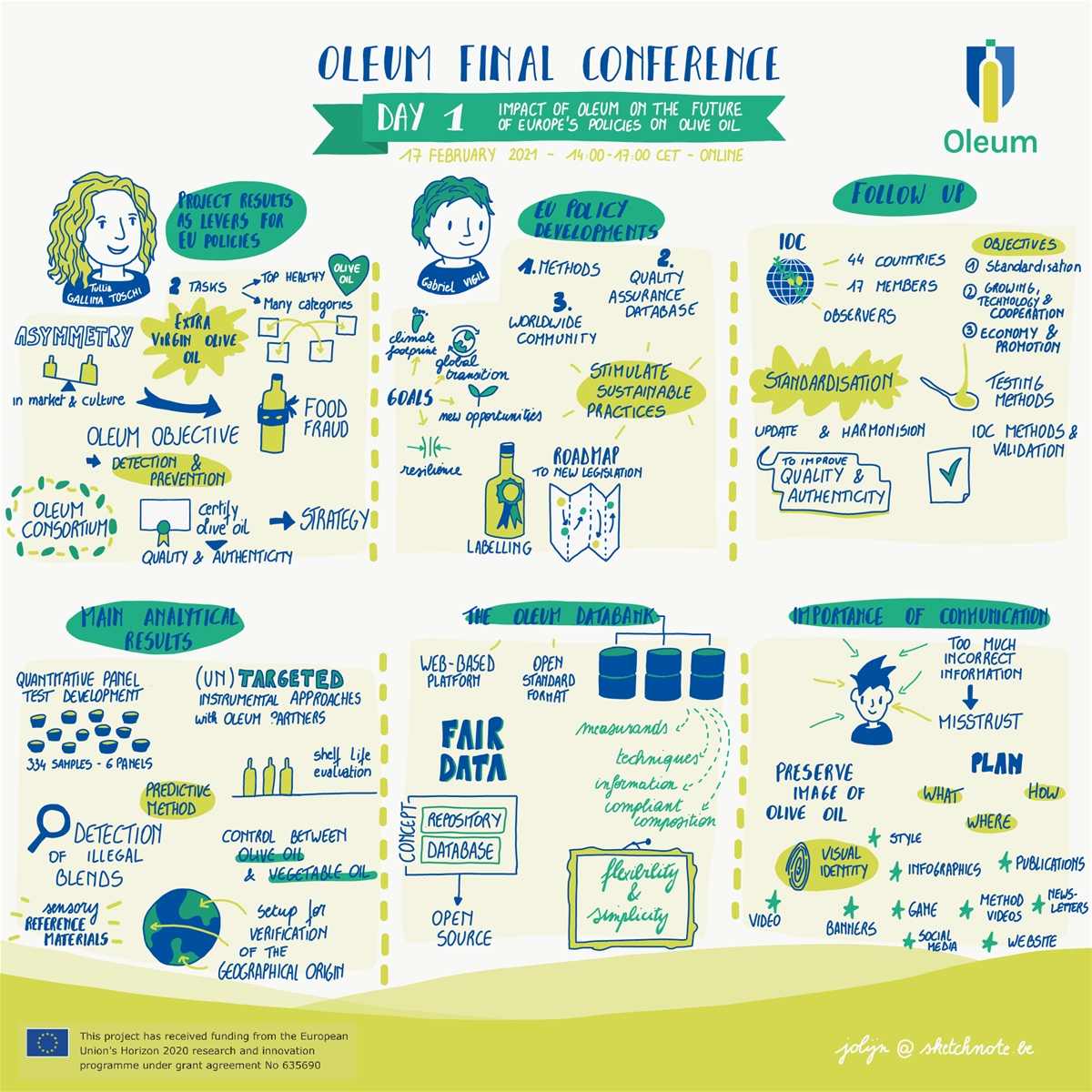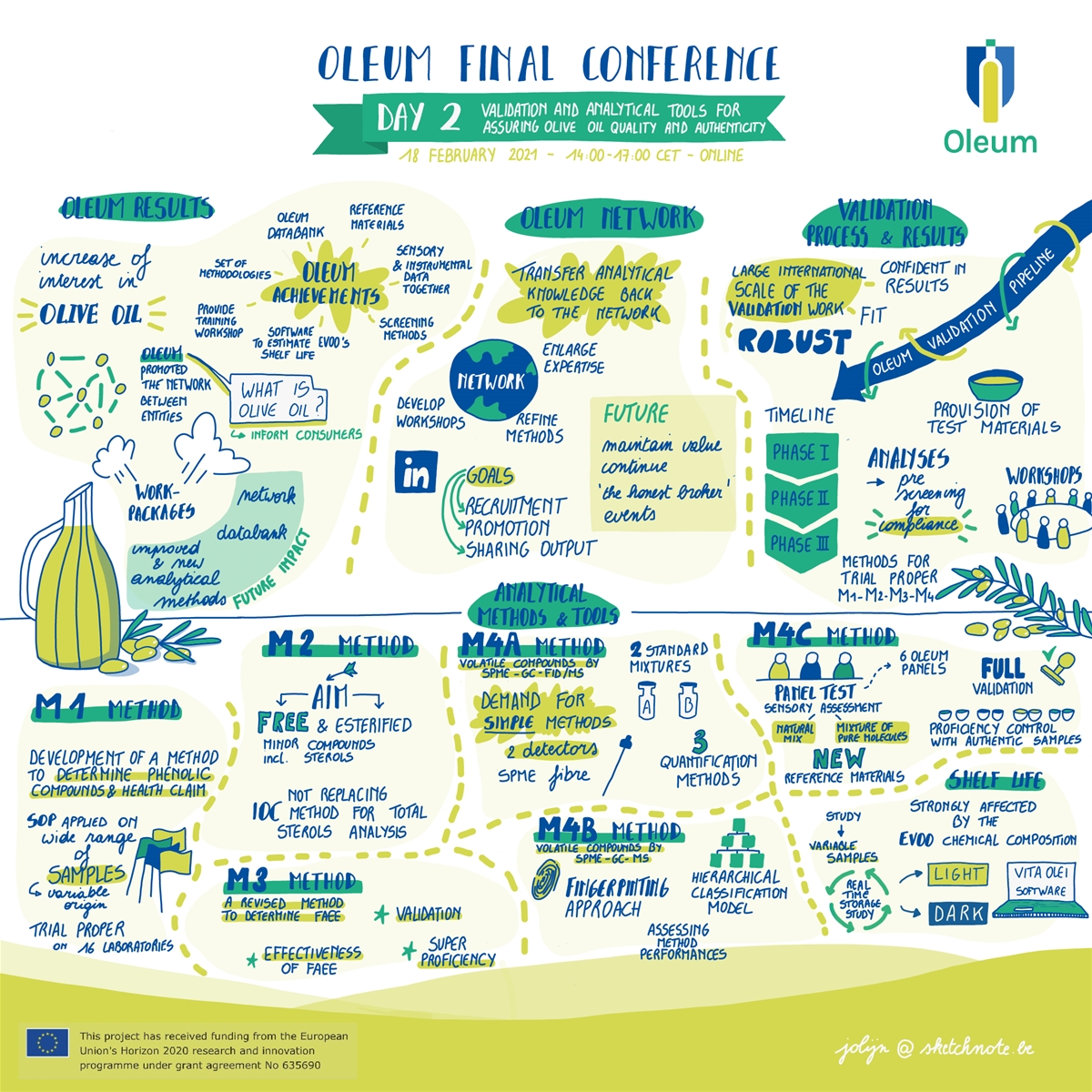At the OLEUM final conference, the project showcased new and improved existing methods to assess the authenticity and quality of olive oil, these include:
- Polar phenols analysis used for assessing the olive oil health claim introduced by the EC regulation 432/2012 for “olive oil polyphenols”
- Free and esterified sterols analysis targeting illegal olive oil blends
- Improved methodology for fatty acid ethyl esters targeting illegal processing or lower quality virgin olive oil
- A group of methods looking at sensory and volatiles analyses for quality and authenticity of virgin olive oil
- Analysis of selected volatile compounds in virgin olive oil by gas chromatography, namely GC-MS and GC-FID
- Analysis of virgin olive oil volatile fingerprint by SPME-GC-MS and chemometrics, as a screening method to support the Panel test
- Sensory analysis of virgin olive oils with the use of two Reference Materials.
These new and revised validated methods range from slight improvements of existing methods, e.g. the free and esterified sterols analysis, and the fatty acid ethyl esters methology; to new advanced multi-analyte/profiling procedures that aim to complement the official Panel Test (sensory analysis).
Rigorous validation and standardization processes were applied to the methods to ensure that they met internationally accepted formats, standards and agreed procedures. Subsequently, statistics were carried out to internationally recognised standards and the studied methods were assessed for suitability as official methods. The formalised results will be available soon and some of the procedures will then be proposed as official methods.
During the project, the Oleum Databank was built as an innovative web access platform to store the documents and validated analytical data generated by the OLEUM consortium. It consists of a repository, database and search tool.
Starting in September 2016, the OLEUM project aimed to develop new and improved existing analytical methods for detecting fraud and ensuring quality of olive oil. On the 17th and 18th of February, the OLEUM project successfully held its final conference. In total, over 400 people from different fields registered for this event, to discover the results of the project and discuss the future possibilities to assure olive oil quality and authenticity. Visual summaries of the content discussed during Day 1 and 2 of the conference can be found below.
Visit the OLEUM website for more information on the project and to view the recordings of the presentations held at the final conference.
Visual summary of the final conference:

